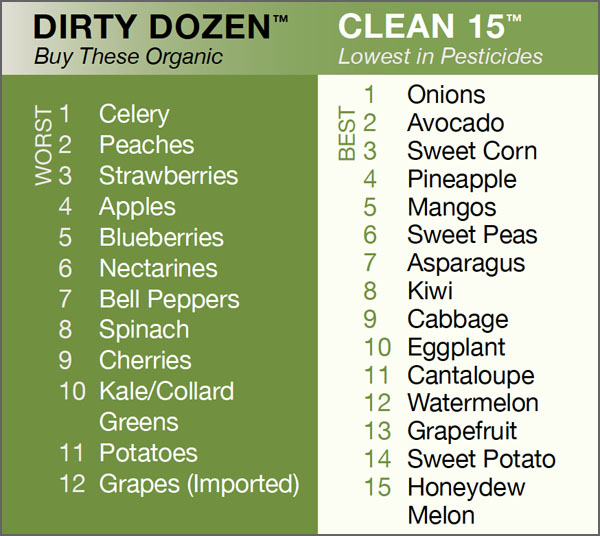A few days ago, three long-term studies were released that found that a woman’s exposure to organophosphate pesticides during pregnancy could affect IQ and memory in her child 6 to 9 years later. Organophosphates are one of the most commonly sprayed, and most toxic, used today on food crops.
We can do better for our children.
People have long known that organophosphates are neurotoxic at high doses. They were originally developed as nerve-gas agents for chemical warfare.
Studies have long linked chronic, low-level exposure to organophosphates to: ADHD and learning disabilities in children; reduced levels of testosterone and fertility in men; leukemia and lymphoma; increased risk of neurological disorders such as Parkinson’s Disease.
Now, three separate teams of researchers at Mt. Sinai School of Medicine, University of California Berkeley’s School of Public Health and Columbia University’s Mailman School of Public Health have found that a child’s IQ will decrease in direct proportion to the mother’s exposure to organophosphates while pregnant.
Study after study has shown the damaging effect these pesticides have on the developing brain. The EPA had put a few restrictions in place, but the emergence of these three new studies show it isn’t enough. The link between prenatal exposure and long-term cognitive development is clear.
The largest source of organophosphates are fruit and vegetables that have been sprayed with the toxic pesticide.
Reduce exposure to organophosphates by:
- washing all produce thoroughly. All produce.
- buying organically grown produce.
- buying locally grown, in season produce.
If you are unable to buy all organic produce, then just do your best to buy the produce with the highest levels of pesticide use organic. Use this handy Shopper’s Guide from the Environmental Working Group to help you learn about the Dirty Dozen and the Clean 15!
But we can’t stop there. I am sure most of you can guess who the test subjects were for each of these studies? Some were agricultural workers or the family members of agricultural workers, some were mutli-ethnic inner city dwellers. All were low-income.
The Safe Chemicals Act of 2011 is one way we can work to make sure all Americans are safe from the highest risk chemicals, not just ones that can afford to buy organic and live in areas with clean water and clean soil.
Have you contacted your Senator yet? Not sure what to say? Safer Chemicals, Healthy Families has some great tips to use writing a personal letter or phone call. Or simply join in sending a message directly to your Senators.
The American Academy of Pediatrics recognizes that we are not protecting children and pregnant women adequately and support this proposed legislation. It is time Congress did too.
How are you going to make a difference today?



Very, very nicely done! Thanks so much for writing on this topic.
Pingback: Happy Birthday, Rachel Carson: reviewing ‘The Sea Around Us’ |
Pingback: Organic and healthy snacks for kids for summer |
Pingback: The NWF and Scotts Partnership: Another Greenwashing Tale. | A green living, green parenting blog
Pingback: Keeping Our Homes Free of Unwanted Toxins | A green living, green parenting blog
Pingback: Are politics valued more than children's health? | A green living, green parenting blog
Pingback: A Mother's Day for change | A green living, green parenting blog
Pingback: 'Sound the Alarm' about toxic chemicals | A green living, green parenting blog
Pingback: A Mother's Day For Change - Moms Clean Air Force